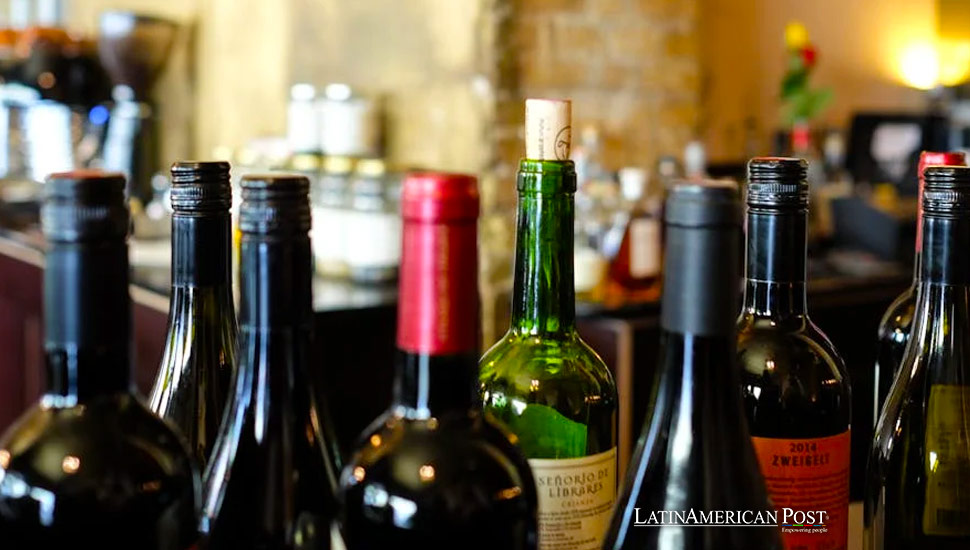Spain and Argentina Join Forces to Revolutionize Wine Authentication

Researchers from the University of Seville and the National University of La Pampa have developed an innovative, cost-effective method to accurately identify the denomination of origin and aging process of fortified wines. This method promises to enhance quality control and prevent fraud.
In a significant collaboration, researchers from the University of Seville in Spain and the National University of La Pampa in Argentina have validated a simple and economical analytical method that precisely differentiates the denomination of origin and aging process of various fortified wines. This breakthrough can become an essential tool for regulatory councils and producers in quality assurance controls.
The project, funded by the Andalusian Ministry of University, Research, and Innovation and the European Regional Development Fund (Feder), aims to characterize the aromatic and spectroscopic profiles of Andalusian fortified wines with protected designations of origin (PDO). The study, recently published in the Microchemical Journal, confirms the method’s effectiveness and potential future implementation in any control laboratory.
The Rich Heritage of Spanish and Argentine Wines
Spain and Argentina boast rich traditions in wine production, each with unique contributions to the global wine industry. Renowned for its diverse wine regions, Spain has a long history of producing fortified wines, particularly in Andalusia. The region’s sherry wines from Jerez, Manzanilla from Sanlúcar de Barrameda, Montilla-Moriles, and Condado de Huelva are globally celebrated for their distinctive flavors and aging processes.
In Argentina, wine production dates back to the Spanish colonization in the 16th century. The country has since developed a robust wine industry, with regions like Mendoza becoming synonymous with high-quality wines. Argentine wines, especially Malbec, have garnered international acclaim, establishing Argentina as a major player in the global wine market.
Innovative Wine Authentication Method
The newly validated method directly and rapidly analyzes wine samples, producing a unique “fingerprint” for each type. This fingerprint acts like a digital ID card, ensuring accurate identification and protecting against fraud and falsification.
Using 104 samples from the PDOs of Jerez, Manzanilla de Sanlúcar de Barrameda, Montilla-Moriles, and Condado de Huelva, the researchers confirmed the method’s utility in differentiating these wines. Rocío Ríos, a researcher at the University of Seville and author of the study, explained, “The tool generates a spectral fingerprint, a unique digital mark for each type. Once introduced into a classification model, the equipment would indicate the specific type.”
This innovative method holds significant promise for both wine producers and regulatory councils. It can streamline routine quality control analyses and establish precise chemical profiles for each class of wine, helping to prevent fraud and ensure authenticity. The researchers are developing a new device that integrates analytical procedures with data processing, allowing users to complete the entire process quickly, from sample analysis to obtaining the final result.
For industrial implementation, the experts aim to expand the number of wines analyzed and further refine the data processing to simplify the procedure, facilitating broader adoption in wineries.
The Importance of Wine Authentication
Authenticating wine is crucial for maintaining the integrity of wine labels and protecting consumers from counterfeit products. With the rise of global trade and e-commerce, the wine industry faces increasing challenges related to authenticity and traceability. A robust authentication system ensures that consumers receive the expected quality and that producers can protect their brand reputation.
This collaborative effort between Spanish and Argentine researchers addresses these challenges by providing a reliable, efficient method for wine authentication. It represents a significant advancement in the field, offering a practical solution to a longstanding problem.
Impact on the Wine Industry in Spain and Argentina
The implementation of this authentication method could have a profound impact on the wine industries in both Spain and Argentina. For Spain, it reinforces the reputation of Andalusian wines, ensuring that PDO labels are trusted by consumers worldwide. This could enhance the market value of these wines and boost exports.
In Argentina, where the wine industry is a significant economic driver, adopting such innovative technologies can further elevate the quality and credibility of Argentine wines on the global stage. It can also help smaller wineries compete by providing them with the tools to certify the authenticity of their products.
The success of this method has broader implications for wine producers throughout Latin America. Countries like Chile, known for its robust wine industry, and emerging markets in Brazil and Uruguay can benefit from adopting similar technologies to authenticate their wines. This enhances the credibility of Latin American wines and fosters greater trust among international consumers.
Enhancing Consumer Confidence
Consumer confidence is paramount in the wine industry. With the ability to authenticate wines accurately, consumers can make informed purchasing decisions, knowing that the wines they buy are genuine and of the promised quality. This confidence can increase sales and loyalty, benefiting producers and retailers alike.
The collaboration between the University of Seville and the National University of La Pampa marks a significant advancement in wine authentication technology. By providing a reliable, cost-effective method to differentiate and verify the denomination of origin and aging process of fortified wines, this innovation enhances quality control, prevents fraud, and supports the integrity of the wine industry.
Also read: Argentina’s Milei to Strengthen Ties with Tech Giants in U.S. Trip
As this technology is refined and implemented, it promises to strengthen the reputation of Spanish and Argentine wines, boost consumer confidence, and set a new standard for wine authentication globally. Spain and Argentina’s partnership in this endeavor highlights the importance of international collaboration in addressing industry challenges and fostering innovation.





